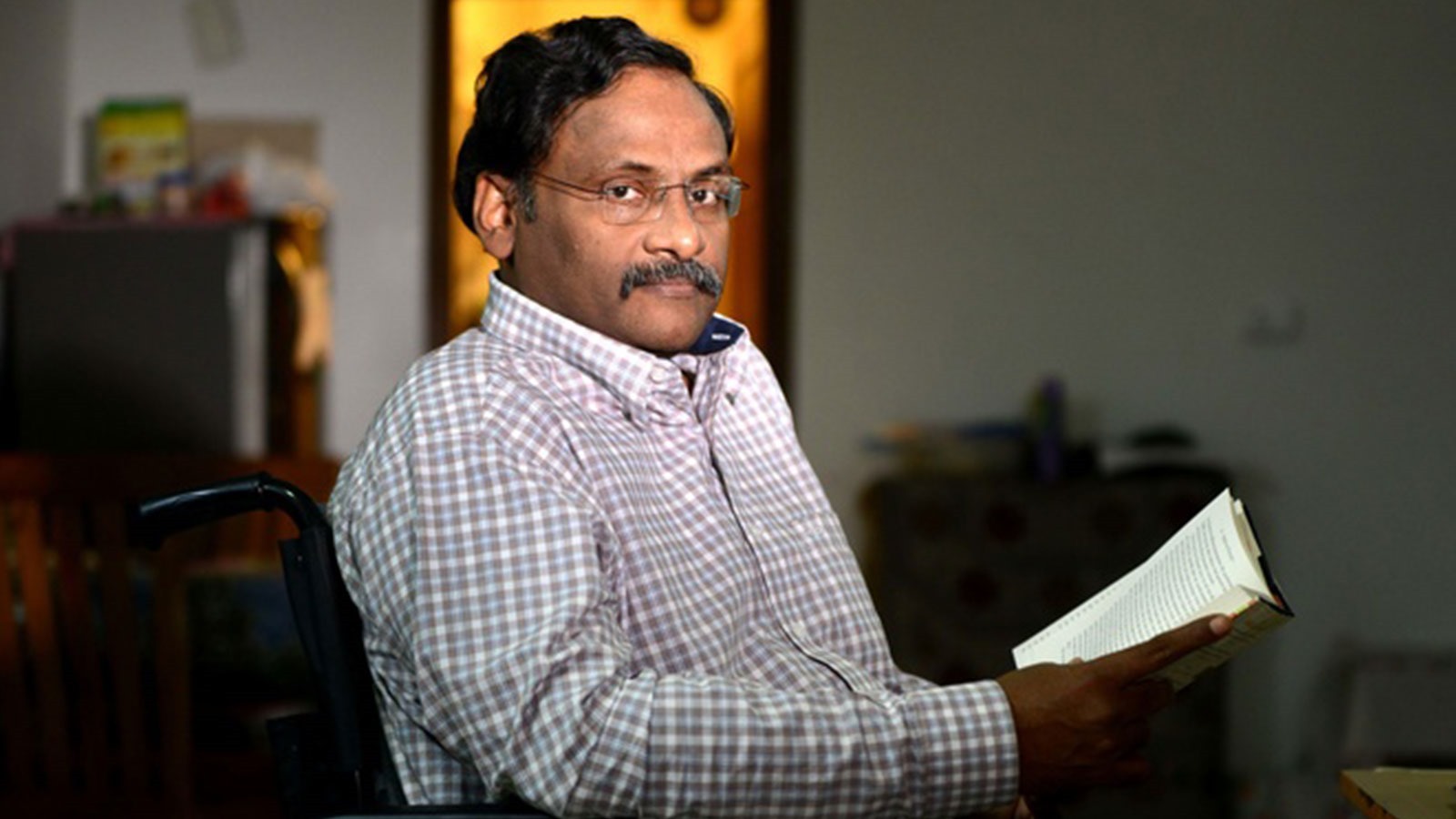Bombay High Court Rejects State’s Plea Seeking Stay On GN Saibaba’s Judgement

The division bench stated that it did not find any satisfactory response from the state as to why the judgment should be stayed
The Bombay High Court has refused to stay its judgment acquitting Delhi University Professor GN Saibaba for his alleged links with Maoists.
A division bench of the high court in Nagpur, comprising Justice Vinay Joshi and Justice Valmiki SA Menezes, pronounced the judgment this morning.
The state government subsequently filed an application seeking a stay on the judgment to allow time for the state to file an appeal before the Supreme Court.
During the evening hearing, Advocate General Birendra Saraf informed the bench that they had filed a Special Leave Petition (SLP) before the Supreme Court.
Saraf sought a stay on the ground that there were wider implications of the case, as the trial court had convicted the professor and five others considering their guilt and the seriousness of the charges.
Senior Advocate Trideep Pais, representing the professor, opposed the application, arguing that acquittal was not at the discretion of the court but a fact-finding determination of the innocence of the accused.
The division bench stated that it did not find any satisfactory response from the state as to why the judgment should be stayed.
“We held that the prosecution has failed to establish the guilt of the accused and there are technical glitches too. Though we put a specific query about our powers after rendering a judgment of acquittal to stay the same, we could not get a satisfactory answer but got a generalized submission that this court has powers. We are not in agreement with this submission to use discretion when the Code of Criminal Procedure does not empower us to order a stay when the court has already become functus officio. Even though charges are serious, looking at the powers that statute vests with us, we are not inclined to make any adventures. We have already acquitted the accused and directed their release forthwith if not required in another crime. We cannot stall said order, which may have an effect on the right of personal liberty,” the court said.
The prosecution claimed that the appellants had connections with the CPI Maoist and its frontal organization, the Revolutionary Democratic Front (RDF).
It was further alleged that the appellants were abetting and assisting the hardcore underground cadre of the CPI (Maoist) by providing information, and material, and facilitating the travel and relocation of members from one location to another.
In October 2022, the Nagpur Bench of the Bombay High Court, comprising Justice Rohit Deo and Justice Anil Pansare, acquitted GN Saibaba and five others. They had been convicted by the trial court under the Unlawful Activities (Prevention) Act (UAPA) and were sentenced to life imprisonment.
The court acquitted all six convicts on the grounds that the sessions judge had framed charges against the appellants and examined the first witness in the absence of sanction.
Subsequently, an appeal was filed in the Supreme Court against Saibaba's acquittal. The top court set aside the acquittal order and directed the high court to decide the matter afresh.
